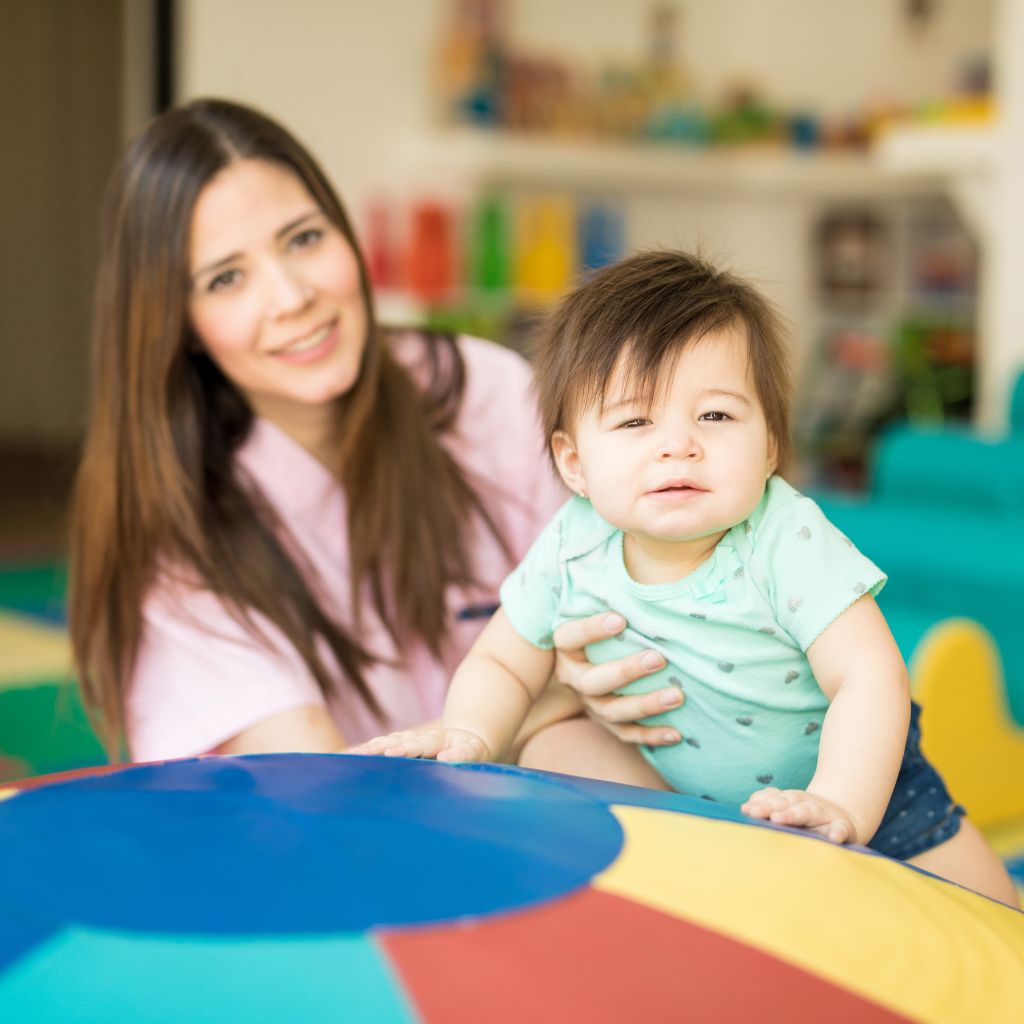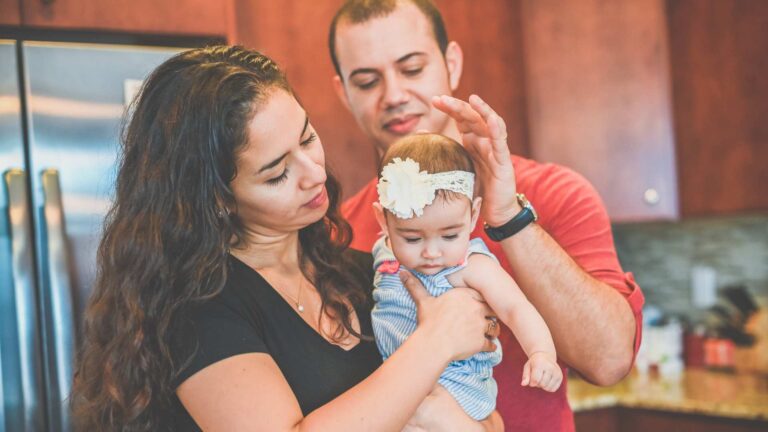Table of Contents
Does My Child Have Autism?
If you’re a parent or caregiver who has asked yourself this question, and you’re wondering whether or not to get an autism assessment for your toddler, you’re not alone.
This concern is one of the most complex and emotional situations a parent can face, especially when your child isn’t reaching the milestones expected for their age. Maybe your pediatrician brought it up during a check-up. Perhaps you’ve noticed something yourself: your toddler doesn’t respond to their name, avoids eye contact, or isn’t using words like other kids their age.
But how early can autism be diagnosed?
The short answer is: earlier than you might think. Certified clinicians can sometimes identify Autism Spectrum Disorder (ASD) as early as 18 months, and in some cases, even younger. However, despite increased awareness of early signs, the typical age of diagnosis remains between 4 and 5 years.
Understanding when to do an autism assessment and what that process looks like can offer clarity, relief, and most importantly, access to the support your child needs to thrive.
In this guide for concerned parents and caregivers, we’ll walk you through the signs to watch for, the autism diagnostic criteria, and why early evaluation and intervention can make such a big difference in your child’s future.
To have professional guidance on autism assessment, contact Texas ABA Centers or explore our autism testing services in Plano, Katy, Austin, and other areas of Texas.
What is Autism Spectrum Disorder (ASD)?
ASD is a neurodevelopmental condition that affects how children communicate, interact socially, and engage with their environment. The spectrum of autism reflects the wide variety of signs and symptoms among individuals.
Children with ASD typically show differences in three main areas:
- Social Communication and Interaction: Challenges with back-and-forth conversation, sharing emotions or interests with others, and understanding nonverbal communication.
- Restricted Interests and Repetitive Behaviors: Children may show intense focus on specific topics, engage in repetitive movements, or insist on following the same routines every day.
- Sensory Processing Differences: The DSM-5 diagnostic criteria for ASD include variations in sensory responses under restricted interests and repetitive behaviors. These differences may appear as hypersensitivity to sounds, lights, or textures, or as hyposensitivity where a child seeks out intense sensory experiences.
Early Signs to Watch For: What Might Signal a Need for Autism Assessment
All children develop at their own pace, but there are some behaviors and developmental signs that might point to a need for closer attention.
According to the CDC’s Learn the Signs. Act Early. program, some early signs include:
- Lack of response to their name by 12 months
- Absence of pointing gestures to share interests by 14 months
- Lack of eye contact or social smiling
- Delayed speech or limited vocabulary
- Performing repetitive motions, including hand movements or spinning items
- Little interest in playing with others or engaging in pretend play
Of course, every child is unique. Some kids might reach certain milestones and still show signs of autism in other areas. The key is to look at the whole picture, and to act early if something doesn’t feel right.
The most recent CDC study found that 1 in 31 children under the age of 8 gets an autism diagnosis, and boys are nearly four times more likely than girls to have autism. These numbers reflect the growing awareness and improved tools we have today, but they also highlight the importance of timely screening and assessments.
How Early Can Autism Be Diagnosed?

Many parents wait until their child is older before seeking an autism diagnosis, but research shows that this delay can limit opportunities for early intervention. According to Children’s Journal, reliable autism diagnoses are possible as early as 18 to 24 months of age, with some signs appearing before the child’s first birthday.
Key Ages for Autism Screening
Healthcare professionals have identified specific ages when autism screening is most effective and essential.
- 9 Months: General developmental screening to monitor overall progress in areas like motor skills, communication, and social engagement.
- 18 Months: This marks the first autism-specific screening alongside general developmental assessment. At this age, many key social communication skills should be emerging, making it an ideal time to identify potential concerns.
- 24 Months: The second autism-specific screening occurs at this critical developmental period. By 24 months, children should demonstrate more complex communication and social skills, making differences more apparent.
- 30 Months: Some guidelines recommend an additional screening at 30 months, particularly for children who may have shown mild concerns at earlier screenings or those considered at higher risk.
Some children need closer developmental observation due to specific factors that increase their likelihood of having autism. Boys, children from families with a history of ASD, and those who have an older sibling on the spectrum fall into this category.
Younger siblings of children with autism face significantly higher odds, between 7% and 19%, making regular monitoring particularly important for these families.
What Happens During an Autism Assessment?
An autism assessment isn’t a single test; it’s a comprehensive evaluation by specialists who understand early childhood development. These professionals may include developmental pediatricians, child psychologists, speech-language pathologists, or behavior analysts.
The process typically involves:
- Developmental screenings: Brief questionnaires about your child’s behavior, communication, and motor skills.
- Observations: Watching how your child plays, responds to social cues, and communicates
- Parent interviews: Sharing your observations and family history.
- Standardized tools: Such as the ADOS-2 or M-CHAT (Modified Checklist for Autism in Toddlers.)
The results of the autism assessment will help determine whether your child meets the diagnostic criteria, and if so, what services or therapies are most appropriate.
What If My Child Has Autism? Support Through ABA Therapy and Early Intervention
If your child receives an autism diagnosis, you might feel overwhelmed, and that’s completely normal. But take heart: there is evidence-based support that can help your child grow and thrive.
One of the most effective and widely used approaches is ABA therapy (Applied Behavior Analysis). ABA is tailored to your child’s unique strengths and challenges and can improve communication, social skills, behavior, and independence.
At Texas ABA Centers, we believe early intervention is essential. Starting ABA therapy sooner gives your child more opportunities to develop foundational skills that support long-term success. Texas ABA Centers provides immediate access to diagnostic services and ABA therapy with no waiting lists, compared to the industry average of two years.
Services may include in-home therapy, parent coaching, school support, and individualized treatment plans that evolve with your child’s progress.
ABA therapy and early intervention also empower parents and caregivers with the tools and confidence to support their child’s growth every day, because you are a key part of your child’s developmental journey.
Get Expert Support for Your Child’s Autism Assessment
You know your child better than anyone. If something feels off, or if you’re constantly asking yourself “Does my child have autism?”, don’t wait for things to “get better on their own.” Early identification leads to early support, and that can make all the difference.
Whether you’re just starting to ask questions or ready to move forward with an autism assessment, Texas ABA Centers is here to help.
Contact us today by calling (877) 771-5725 to schedule an autism assessment, learn about insurance coverage, and how we can support your family!









